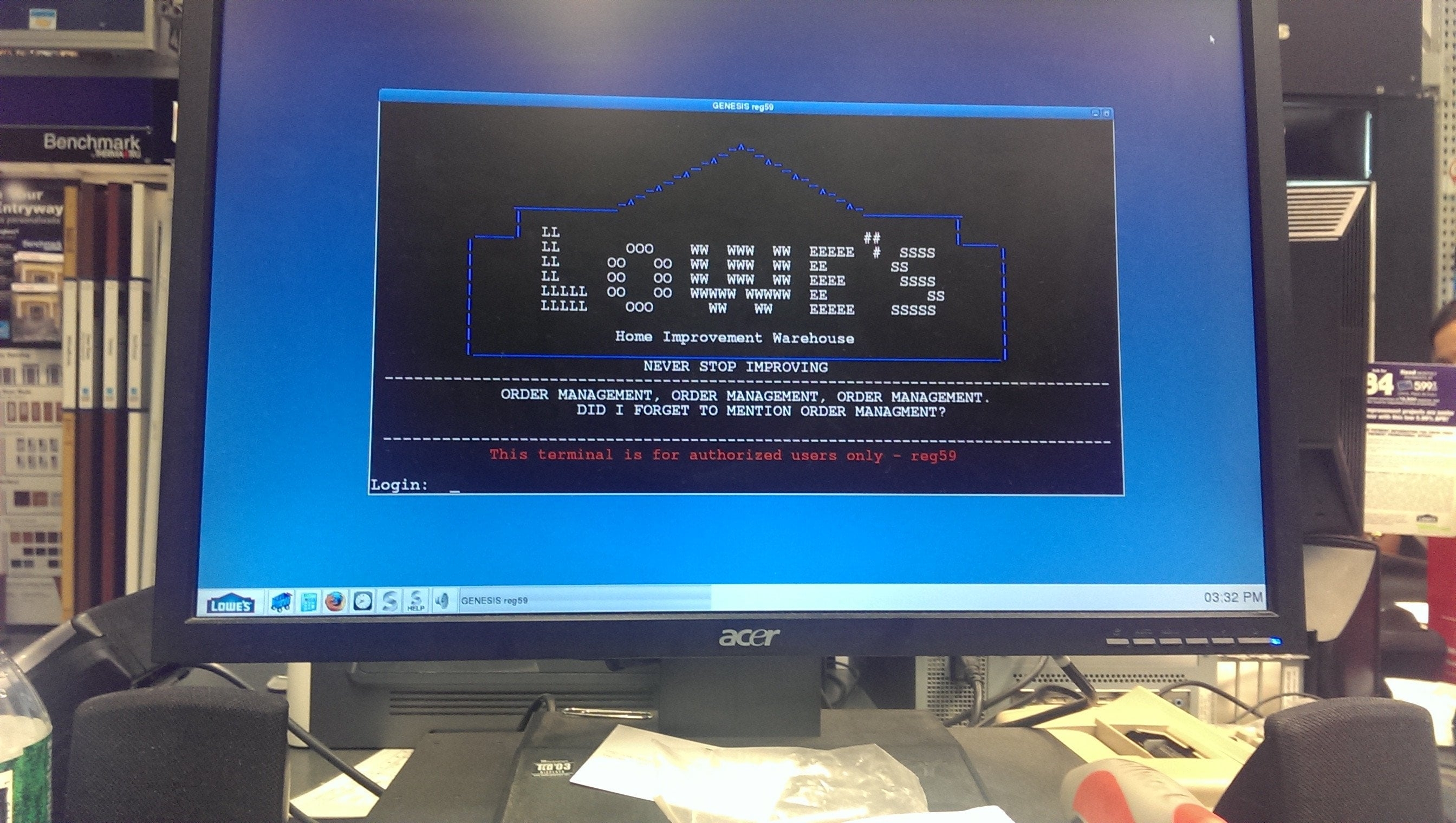I made this post because I am really curious if Linux is used in offices and educational centres like schools.
While we all know Windows is the mac-daddy in the business space, are there any businesses you know or workplaces that actually Linux as a business replacement for Windows?
I.e. Mint or Ubuntu, I am not strictly talking about the server side of things.
Any web hosting company will use Linux for all servers, and many developers will use it as their workstation as they tire of kludging together dev environments in windows. The devops engineers will most certainly be on Linux as that is where their tool chains live.
There are government agencies that use Linux exclusively. The DoD used to have a mandate to use oss. I’m not sure if it is still the case.
Scientists, HPC.
I’ve set up Linux machines for a school that had ancient computers and $0 computer lab budget. Within 2 years, they purchased new Apple computers.
I know lowes uses linux for there registers and help desks.

Their*
I forgot about that. Thanks for the reminder
Myself and several of !y coworkers use Linux at work bit, to be fair, it is a tech job.
There was an interview with Dreamworks ( i think that was the Animarion houae) they use linux for everything.
In engineering CAD and large manufacturing corporations RHEL and SUSE are the two certified distros for running Teamcenter Produc Lifecycle Management softare and Siemens NX CAD/CAM/FEA software (up to version 12) it is a smaller market than Windows versions, but probably took the place of the original unix versions prior to 2000
I think there are a few small companies that use it. Additionally it is used by some developers.
The company I work at uses Kubuntu. At least the devs.
It was amazing finding this out as a Linux user.
At my company, we use ubuntu for the simple reason that our servers are running it.
My past 2 jobs have been Linux Desktop. The one before that was WSL (ew)
I use Linux at the office. I’m the only employee at my company who does.
I haven’t had many issues collaborating with others using libreoffice while they use MS office. I do keep a Windows VM running for those somewhat rare instances where I need Windows for something though. I also needed to invest quite some time to figure out Linux alternatives for everything (how to use company VPN, how to get MS Teams working, how to connect to network drives, etc).
But so far so good. Been 100% Linux at work for maybe ~1.5 years?
you should keep a list and tell management how much software costs youre saving and how that can be scaled for every employee
When I worked in VFX it was mostly Scientific Linux. A few macs were around for concept artists using Photoshop, and editorial using a proprietary video codec with Final Cut. Most business folks (in vfx called “coordinators” and “producers”) used tools that were web-based and cross platform (for example, Autodesk Shotgrid, Confluence, and Jira). A lot of internal development is done in Python so no worries there, either.
In game dev unfortunately it’s exclusively Windows. If you bring up even using
os.join, instead of hardcoding \\ into paths, devs who have never worked in another OS look at you like some sort of paranoid maniac.This might be cheating a bit since I am a computer science student, but we have Linux servers we can access for classes, and our university library has a maker space that has some computers running Ubuntu in it.
We have primarily used windows servers, but our datalake, data warehouse and internal apps are on Linux servers.
I have attended or been involved with five different state universities and a few different community colleges. For computer science, aside from one glaring exception, the default has been some flavor of Linux. The earliest for me at a school was Fedora 7. I think they had been running Solaris in the late 90s; not sure what was before that.
The only glaring exception is Georgia Tech. Because of the spyware you have to install for tests, you have to use Windows. Windows in a VM can be flagged as cheating. I’m naming and shaming Georgia Tech because they push their online courses hard and then require an operating system that isn’t standard for all the other places I’ve been or audited courses.
It’s much the same where I come from.
The high quality institutions have Linux in their labs (either a separate lab or dual boot) and a server with say access for training ML models etc.
The dodgy ones have only Windows with no software and require students to buy a second laptop and install Linux. If they don’t the students fail. Those tests were done in handwriting but they are still an accredited university :(
If you are talking about the computers themselves having Linux on them by default or dual bootable, then I’m kinda jealous. At the community college I attend, the computer lab for CS and IT related classes has only windowss 10.
The universities I’ve physically attended have had dedicated computer labs with Linux. My undergrad math department was all Linux, come to think of it. Easier IT and not a huge need for Word.
Well, I wouldn’t really say that it’s used as a Windows replacement at the company I’m working at, because all the business stuff is still being done using Windows, but almost all developers are using Linux. I was even allowed to replace Ubuntu with Arch, because I was annoyed by outdated packages. Because of the higher freedom, I can even tolerate the slightly smaller pay rate and benefits that I could earn elsewhere.
We are mostly working on EDA tooling.







